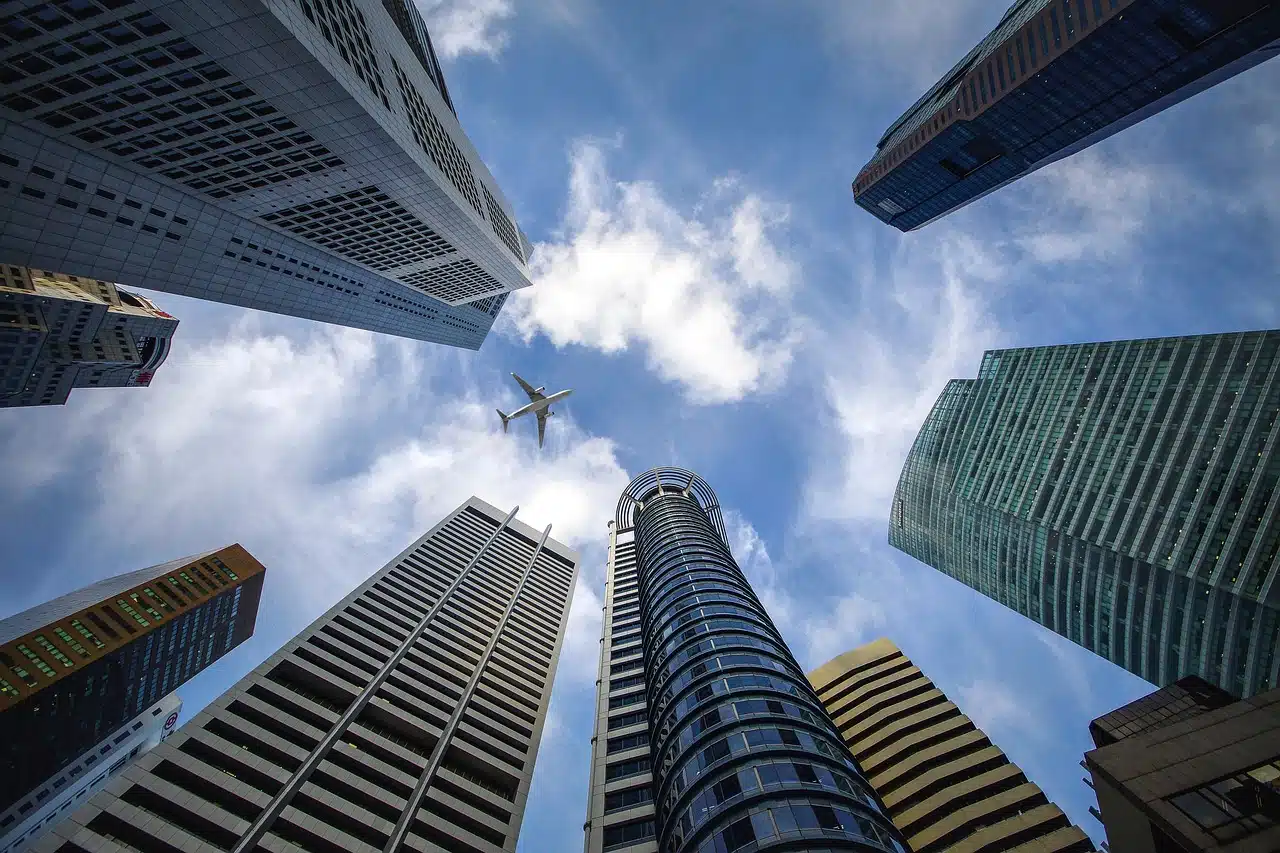Nowadays, the role of geopolitics cannot be overstated. It is a field that shapes international relations, influences policy decisions, and impacts global economics and security.
What drives this complex geopolitical landscape is the critical function of translation services.
These geopolitical studies translation services are not merely about converting words from one language to another; they are about capturing the subtle nuances and deep complexities that define political discourse, ensuring that the intentions and meanings behind diplomatic communications are preserved across diverse languages and cultures.
Having accurate translation in geopolitics extends far beyond simple comprehension.
It is about fostering mutual understanding and cooperation between nations, thereby contributing to a more stable and unified international community.
In this post, we will delve into why geopolitical studies translation is so crucial for geopolitics, examining its impact on diplomacy, international alliances, and global governance.
We aim to shed light on how translation services play a pivotal role in bridging divides and facilitating dialogue in a world marked by intricate political and cultural landscapes.
The Terrain of Geopolitical Studies Translation and Interpretation
The realm of geopolitical translation spans an extensive variety of languages, each with its distinct hurdles.
Translators and interpreters working within this field face the dual challenge of bridging both linguistic and cultural divides.
Their task goes beyond mere word-for-word translation; it’s about maintaining the essence and intent of the original content, accurately reflecting its significance in a different linguistic context.
Achieving this level of precision requires a deep comprehension of the cultures associated with both the source and target languages.
Moreover, translators must possess a solid grasp of the specialized vocabulary that is intrinsic to geopolitical dialogue.
This combination of cultural insight and linguistic expertise is essential for ensuring that translations uphold the original message’s integrity, facilitating clearer communication on the global stage.
Sectors of Geopolitical Studies Translation
Geopolitical studies translation and interpretation play a crucial role across various sectors, providing solutions for linguistic and cultural divides to foster understanding and cooperation on a global scale.
This multidimensional field impacts government decisions, academic research, media reporting, and corporate strategies, each with its unique demands and challenges.
Below, we explore the distinct areas where geopolitical translation is indispensable.
Government and Policymakers
- Precision for International Relations: In the realms of government and policymaking, the accuracy of translation is paramount for effective diplomacy and international relations.
- Impact of Misinterpretations: Minor errors can lead to significant consequences, highlighting the need for translators to demonstrate exceptional skill and adhere to strict confidentiality.
Academic Perspectives
- Facilitating Global Research: Translation enables the flow of academic research in geopolitics across linguistic barriers, enriching international relations and political science with diverse insights.
- Understanding Across Borders: The exchange of ideas facilitated by translation is vital for grasping the multiplicity of perspectives inherent in global studies.
Media and Journalism
- Accuracy in Reporting: For international news to be reliable, translations must be accurate, ensuring that narratives are consistent and unbiased across languages.
- Cross-cultural Journalism: The role of translation in media is to maintain the integrity of news stories as they traverse cultural and linguistic boundaries.
Corporate Sector
- Strategic Translation in Global Markets: Navigating international markets requires precise translation, especially for legal and compliance documents.
- Legal Implications and Local Nuances: The corporate sector relies on translation to understand and comply with international laws, underscoring the importance of accuracy and cultural sensitivity in global business practices.
Technological Advancements in Translation Services
AI and machine learning algorithms are increasingly sophisticated, capable of handling vast quantities of data at speeds unattainable by human translators and interpreters.
This technological advancement supports the rapid dissemination of geopolitical information, which is crucial for timely decision-making in international relations, policymaking, and global media coverage.
However, there are a few important things to point out:
Human translators excel in capturing cultural nuances and linguistic subtleties critical for conveying complex geopolitical texts accurately.
Despite advancements in AI understanding context, humans remain superior in adjusting translations to match cultural and situational nuances.
The future likely leans towards a hybrid approach, combining machine efficiency with human insight for high-quality, context-sensitive translations.
This integration aims not to replace, but to augment human expertise, striking a balance crucial for navigating the dynamic geopolitical landscape.
Ethical Considerations in Geopolitical Studies Translation
Maintaining neutrality and objectivity is a requirement, particularly within sensitive international contexts.
Translators and interpreters encounter ethical challenges that transcend simple language translation, influencing global perceptions and actions.
Their role is critical in ensuring information is conveyed accurately and impartially, highlighting the profound responsibility that comes with translating in geopolitical arenas.
Advancements in Geopolitical Translation Studies
Geopolitical translation is undergoing significant transformation, not only limited to English, French, German and Spanish, new languages and regions emerge as key players on the global stage providing a circulation of knowledge.
This evolution presents a blend of challenges and opportunities for translation services, necessitating adaptation to the shifting linguistic and geopolitical landscapes.
Expert Tips for Geopolitical Studies Translation Service Providers
For accuracy and efficiency, adherence to best practices is crucial.
Building a team of expert translators and interpreters, who are knowledgeable in specific geopolitical contexts, is essential for delivering quality services.
Translation services in the field of geopolitical studies play a pivotal role in sculpting international political dialogue.
With the world becoming increasingly interconnected, the need for adept translators in this domain is on the rise, forecasting a future filled with both challenges and opportunities.
For more detailed insights into this evolving landscape, we invite you to explore the FAQ section below.
FAQs on Geopolitical Studies Translation
Unique Aspects of Geopolitical Translation
- Geopolitical translation is distinct due to its engagement with complex political, economic, and social issues requiring not just linguistic skills but a deep understanding of cultural, political, and historical contexts.It demands cultural sensitivity, expertise in specialized terminology, high confidentiality, and a strong commitment to neutrality and objectivity.
Impact of Technological Advances
- Technological advancements, including AI and machine translation tools, have transformed the geopolitical translation landscape by providing foundational translations quickly, enhancing accuracy, and improving efficiency through terminology management systems.
However, human translators remain crucial for navigating nuances, maintaining neutrality, and interpreting complex rhetoric.
Challenges Faced by Translators
- Translators in geopolitical studies navigate numerous challenges, such as conveying cultural nuances, dealing with specialized jargon, maintaining neutrality, managing confidentiality, and keeping up with the rapidly changing geopolitical environment.
Ethical dilemmas and high-pressure situations are common, requiring a balance of linguistic skills and in-depth geopolitical knowledge.
Ensuring Impartiality
- Maintaining impartiality involves a deep understanding of the geopolitical context, adhering to professional ethics, being culturally sensitive, using neutral language, engaging in continuous education, and employing collaborative and reflective practices.
Confidentiality and consulting multiple sources are also key to preserving impartiality.
Role in International Journalism and Media
- Translation is vital in international journalism for providing diverse perspectives, facilitating cross-cultural communication, ensuring accurate reporting, breaking language barriers in crises, supporting democracy, and countering propaganda.
It enables access to global media, enhancing media literacy and contributing to a more informed society.
Reliability of Machine Translation Tools
- While machine translation tools offer speed and efficiency, their reliability in geopolitical translation is limited due to challenges with complex nuances, contextual understanding, specialized terminology, and confidentiality concerns.
Human oversight is essential for accuracy and cultural sensitivity.





